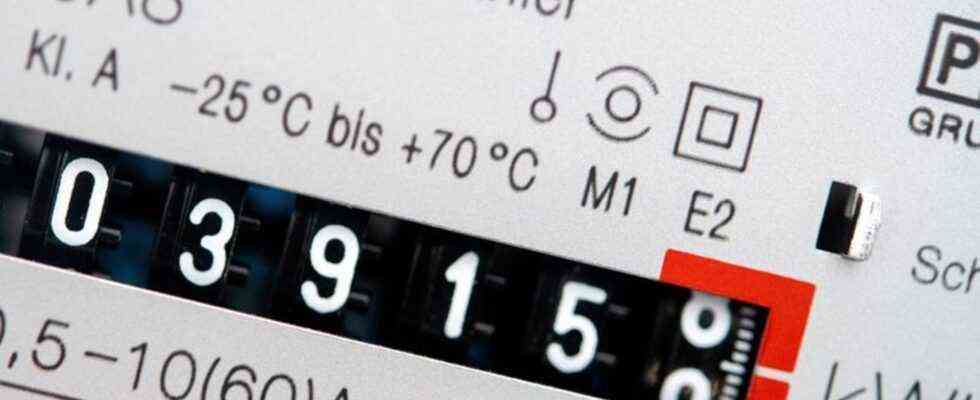energy
Report: Industry avoided billions in EEG levy payments
An alternating current meter shows the current meter reading in kilowatt hours in a household. Photo: Hauke-Christian Dittrich / dpa
© dpa-infocom GmbH
The state is said to have escaped up to ten billion euros in the EEG surcharges through trickery – to the chagrin of normal electricity customers. The “Spiegel” writes about around two dozen companies.
According to a report by “Spiegel”, industrial groups in Germany have evaded the EEG surcharge for green electricity funding for years and thus not paid billions to the state.
The other electricity customers, who would have had to pay correspondingly higher premiums, are the ones who suffered, writes “Spiegel”.
According to the report, a good two dozen well-known companies, energy suppliers and municipal utilities are involved. According to estimates, it is around eight to ten billion euros. It is currently being clarified in several court proceedings whether the practice was unlawful.
One case concerns the Bayer Group and its former subsidiary Currenta. In this case alone, according to “Spiegel”, there are repayments of up to one billion euros in the room. Because of the ongoing legal proceedings, a Bayer spokesman did not want to comment on Saturday when asked.
In the controversial practice, the companies are said to have used exception rules for electricity generated with their own power plants. Electricity generated and consumed by the industry itself is exempt from the EEG surcharge, which currently accounts for around a fifth of the electricity price for end consumers. With the help of so-called slice leasing models, several large electricity consumers as operators would each have shared a power plant in order to be considered an electricity generator and benefit from the EEG exemption.
The news magazine relies on calculations by experts who had used the four major transmission system operators Amprion, Tennet, 50Hertz and TransnetBW. In 2019 you checked window lease models from around 300 industrial companies and criticized them in numerous cases.

